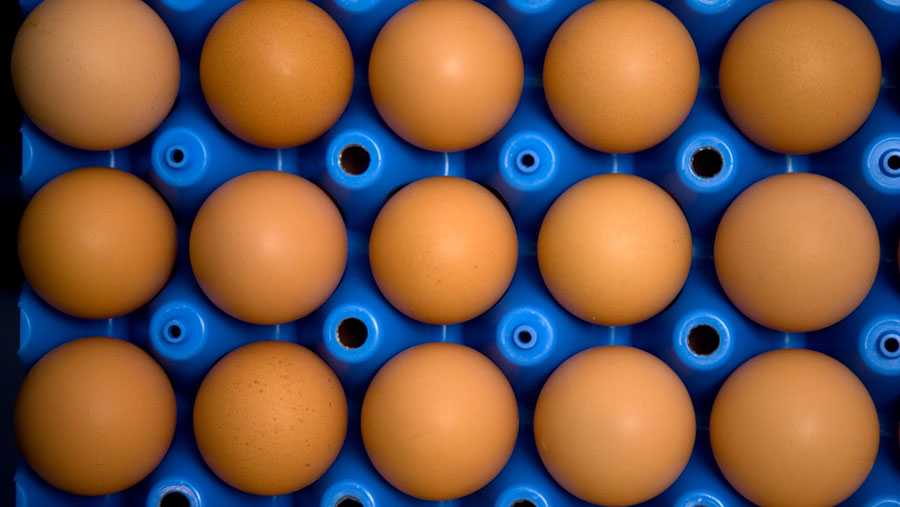Editor’s view: Culture change needed to secure future food supply
 © Tim Scrivener
© Tim Scrivener Of all the supply chains to be found in British agriculture, it is the ones in the egg and poultry sectors that are so often held up as examples of best practice.
Devoid of taxpayer support, stakeholders from primary producers and egg packers to meat processors, and even retailers, have learned to work together.
See also: Broiler supply chain needs investigating too, say leaders
Some of the first “cost-plus” contracts were developed in these two sectors and farm assurance has worked well for both.
It is said that 95% of egg production is now covered by the British Lion Code.
That is not to suggest that everything is perfect. Far from it.
The first cracks in the egg supply chain appeared in late 2021, as production costs soared but retailers refused to put more cash in at the top level.
When retail egg prices did eventually start to climb in mid-2022, the increments were too cautious and the extra money still failed to filter down to flock-keepers.
The result was a double-digit contraction in the laying flock, with something like one billion fewer eggs produced in 2022 than in 2019.
By the end of last year, Italian barn eggs were occupying the shelves of some supermarkets where British free-range eggs once had pride of place.
Although retailers preferred to blame avian influenza, the upshot was the launch last week of a full Defra investigation into the functioning of the supply chain – to find out exactly why egg producers have been left languishing at the bottom of the pile.
Things are little better in the poultrymeat sector. Broiler growers at this week’s Egg and Poultry Industry Conference complained bitterly about the continuing squeeze on their margins, with many locked into high-cost energy contracts, while facing severe financial pressure due to retail price wars and a flood of cheap chicken from Poland, the Netherlands and Ukraine.
Sounds familiar? It probably does to those in horticulture, where the House of Lords this week published its report on the sector, highlighting supply chain imbalance and an overdependence on imports.
But perhaps the starkest example of supply chain breakdown is to be seen in the sugar sector.
Relations between beet growers and monopsony processor British Sugar have sunk to an all-time low.
The two sides have been trying to reach an agreement on price for next year’s crop for months, but despite the current buoyant market outlook for sugar globally, British Sugar is trying to impose a £2/t price cut on growers.
The provocative move to offer a contract now, while price negotiations with NFU Sugar are still in progress, is clearly a contravention of the Inter Professional Agreement.
For this, British Sugar has received a gentle rap on the knuckles from government, though Defra seems reluctant to get directly involved.
That is perhaps unsurprising. For even though Defra is poised to introduce fair-trade legislation in the dairy sector, government intervention in the supply chain really should be a last resort.
What is needed is a culture shift on the part of retailers and processors to ensure that everyone gets a slice of the cake.
Yes, there is a cost-of-living crisis going on and everyone is feeling the pinch.
But if most of the pain is dumped on those at the bottom of the supply chain, the inevitable consequence will be further contraction of domestic food production – as happened with eggs – and an increased dependence on substandard imports – as happened with eggs – food security be damned.
